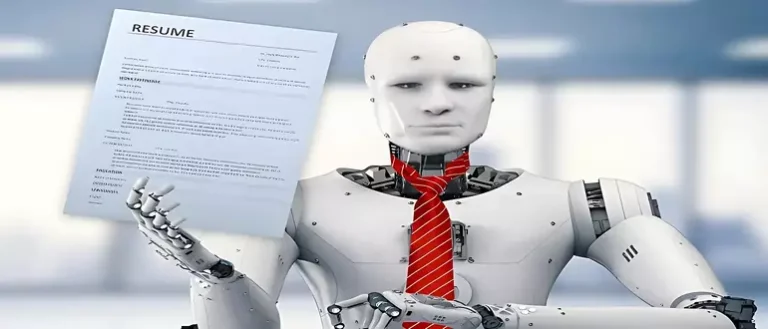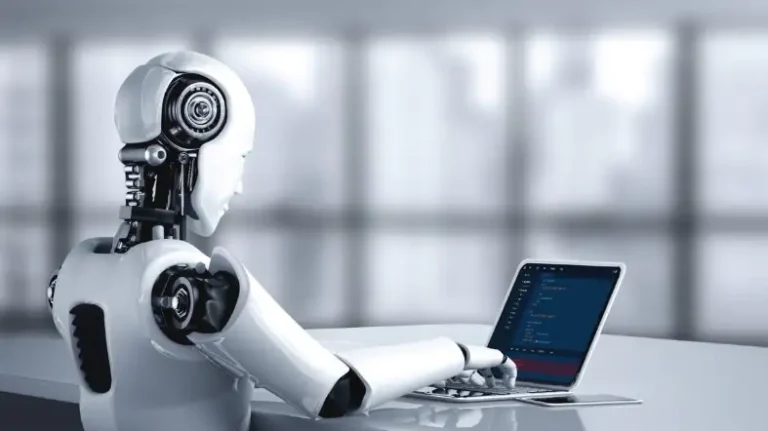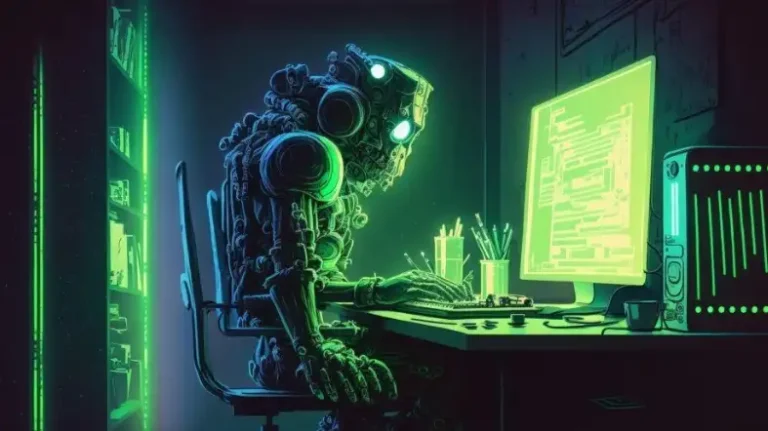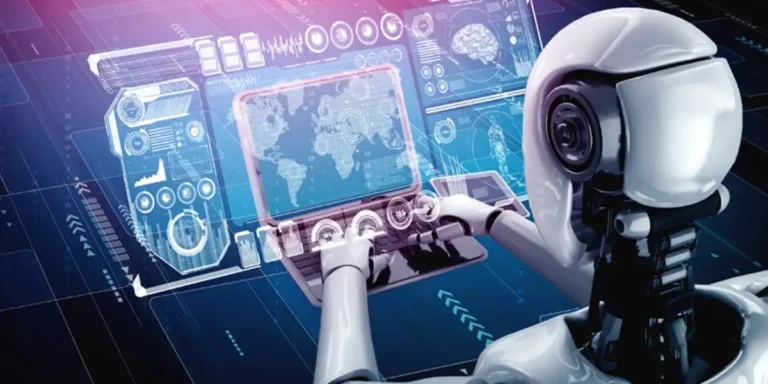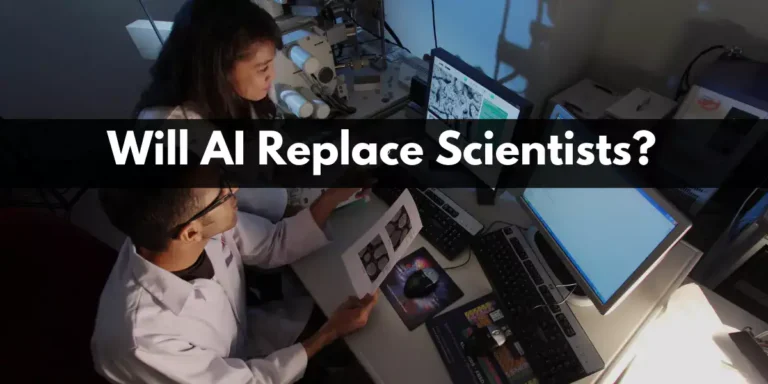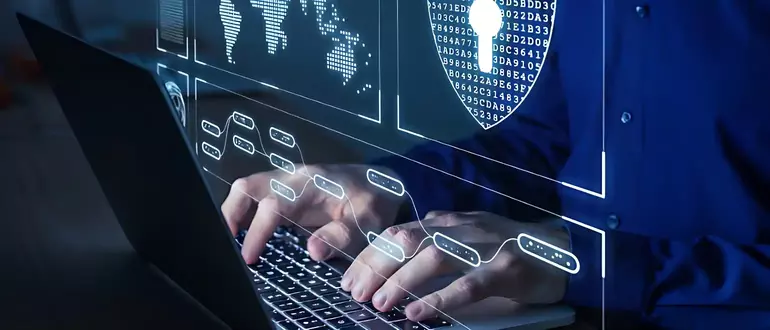
Data analysis, cybersecurity, and other areas have debated whether artificial intelligence (AI) will replace humans.
AI may replace these professionals partially, but others think it will enhance human work.
This article will discuss whether AI will replace cybersecurity professionals, its impact, and the future of these professions. Also, this profession’s advancement and risk in the AI age.
Will AI Replace Cyber Security Jobs?
No, AI will not replace cyber security jobs. Rather, it will enhance the work of security professionals and potentially lead to more job opportunities.
While some IT leaders are concerned about AI replacing their jobs, experts believe AI will change cyber security professionals’ work.
The cybersecurity workforce gap will hit 1.8 million by 2022, and there will be 3.5 million cybersecurity job openings by 2021.
What Is The Impact Of AI On Cyber Security Jobs?
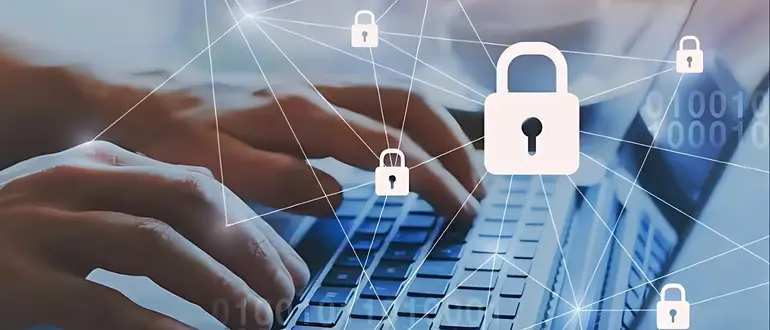
AI Creates New Jobs in Cybersecurity
AI is creating new job roles in cybersecurity, known as “new-collar” jobs. AI in cybersecurity is creating new problems to analyse and solve, increasing the demand for cybersecurity experts who comprehend and use AI.
This includes cybersecurity experts who can develop and implement AI-based security systems and tools and data scientists and analysts who can interpret these systems’ massive amounts of data.
Additionally, AI is creating new roles, such as AI ethicists and explainability experts.
They can ensure that AI-based security systems are transparent, accountable, and aligned with ethical principles.
AI Has the Potential to Replace Some Cyber Security Jobs
AI is both making and replacing cybersecurity jobs. AI-based security systems and tools automate tedious tasks, reducing the need for human analysts to study data and spot threats manually.
Thus, some cybersecurity experts may lose their jobs. AI will not replace human skills in cybersecurity, as intuition and creativity are still needed.
AI is Changing the Nature of Cybersecurity Work

AI makes defense work more efficient and effective. Analysts can focus on more complex tasks like threat hunting and reaction planning with AI-based security systems and tools.
AI can also improve cybersecurity professionals’ decision-making by giving real-time threat intelligence and actionable insights.
AI is augmenting cybersecurity roles.
AI has changed how cybersecurity experts work. AI helps cybersecurity professionals spot, analyze, and respond to threats.
AI helps cybersecurity professionals rapidly spot and respond to threats, reducing cyber-attacks. This means cybersecurity professionals must be AI-savvy as their jobs evolve.
AI is replacing repetitive tasks.
AI can execute human tasks due to its fast and accurate data processing. This includes performing repetitive tasks such as scanning for vulnerabilities and malware.
As a result, some cybersecurity jobs that involve repetitive tasks are being replaced by AI, freeing up cybersecurity professionals to focus on more critical tasks.
AI is creating new job roles.
The integration of AI into cybersecurity has created new job roles, such as AI security engineers and AI security analysts.
These roles require a blend of cybersecurity expertise and AI skills, making them highly specialized.
As AI continues to evolve, new job roles are likely to emerge, creating opportunities for cybersecurity professionals with AI skills.
AI is changing the skill set required for cybersecurity jobs
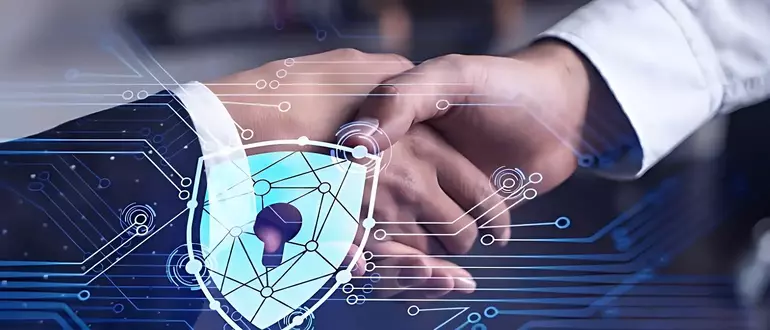
The introduction of AI into cybersecurity has changed the skills required for cybersecurity jobs.
Cybersecurity professionals are now required to know about AI and its applications in cybersecurity.
This means that professionals who want to succeed in cybersecurity need to have both cybersecurity expertise and AI skills.
AI is increasing the demand for cybersecurity professionals.
The increase in cyber threats has led to an increased demand for cybersecurity professionals. The integration of AI into cybersecurity has further increased this demand.
As AI becomes more prevalent in cybersecurity, the demand for cybersecurity professionals with AI skills is likely to grow.
This means that there are plenty of job opportunities for cybersecurity professionals with AI skills.
How Can Cybersecurity Professionals Prepare For The Future With AI?
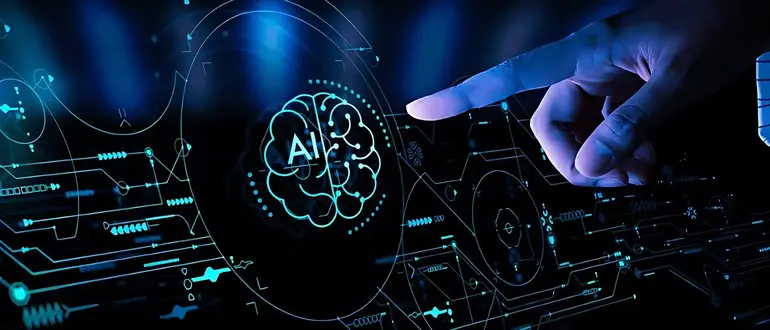
Here are some steps that cybersecurity professionals can take to prepare for the future with AI:
Understand the potential of AI and Stay up-to-date with AI-based cybersecurity solutions
Understand AI’s safety potential first. AI can automate tedious jobs, spot threats, and predict attacks.
AI can help cybersecurity professionals detect and react to cyber threats faster.
Staying abreast of AI-based cybersecurity solutions’ newest developments is crucial. To learn about new tools and techniques, visit conferences, webinars, and industry events.
Learn about different AI-powered cybersecurity solutions.
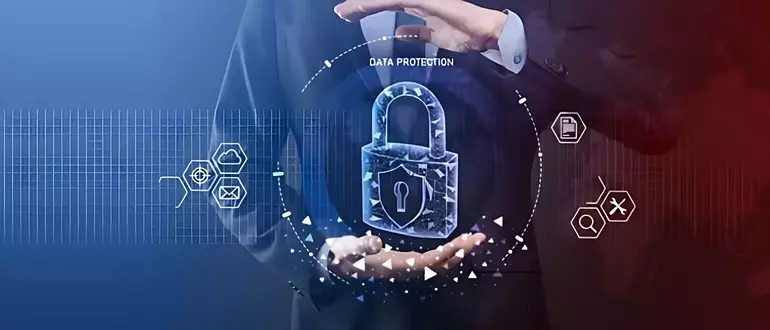
The next step is to learn about different AI-powered cybersecurity solutions available on the market.
These solutions can range from intrusion detection and prevention systems to security information and event management (SIEM) systems.
They use AI algorithms to identify unusual patterns in network traffic.
By staying up-to-date with the latest AI-powered cybersecurity solutions, you can select the one that best meets your organization’s needs.
Implement AI-based cybersecurity solutions.
To fully benefit from AI-based cybersecurity solutions, organizations must implement them effectively.
This involves identifying the right solutions and integrating them into existing security operations.
Implement AI tools for threat intelligence analysis
Another area where AI can be useful is in threat intelligence analysis.
AI algorithms can analyze large amounts of data quickly and provide insights into potential threats.
By implementing AI tools for threat intelligence analysis, you can quickly identify and respond to emerging threats before they cause significant damage.
Invest in AI training and education.
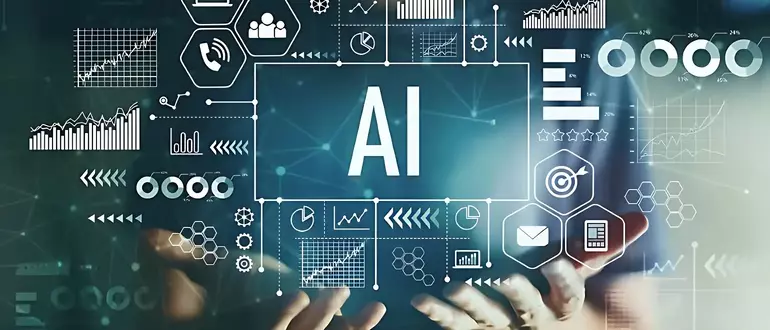
To fully leverage the potential of AI in cybersecurity, you need to invest in AI training and education.
This includes learning about the latest AI-powered cybersecurity solutions, developing programming skills to develop custom.
AI algorithms and understanding how to integrate AI into your existing cybersecurity infrastructure.
By investing in AI training and education, you can position yourself as a valuable asset to your organization.
Work with AI systems and human analysts to maximize efficiency
Finally, to maximize the efficiency of AI in cybersecurity, you need to work with AI systems and human analysts in tandem.
AI can automate many routine tasks, allowing human analysts to focus on higher-level threats and security issues.
By working together, AI systems and human analysts can provide a more comprehensive and effective cybersecurity defense.
What Are The Potential Advancements In AI And Cybersecurity?
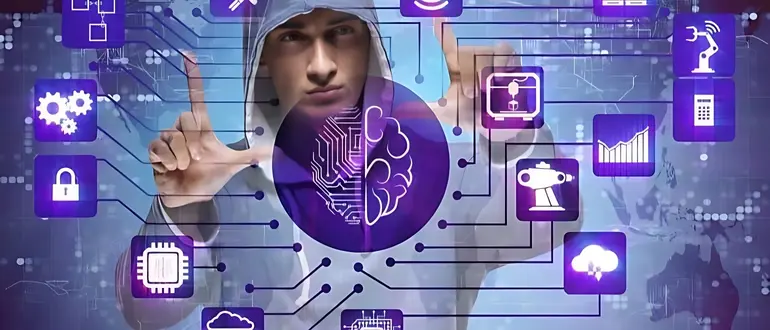
Cyber AI as a Force Multiplier
According to a report by Deloitte Insights, Cyber AI can be a force multiplier that enables organizations to respond faster than attackers can move and anticipate these moves and react to them in advance.
This means that AI can help organizations proactively identify and mitigate cyber threats before they can cause damage.
Early Adoption of Cyber AI Technology
Cyber AI technology and tools are still in the early stages of adoption. However, the global market is expected to grow by US$19 billion between 2021 and 2025.
This growth is driven by the increasing number of cyber attacks and the need for more advanced cybersecurity solutions.
AI-powered Threat Detection and Response
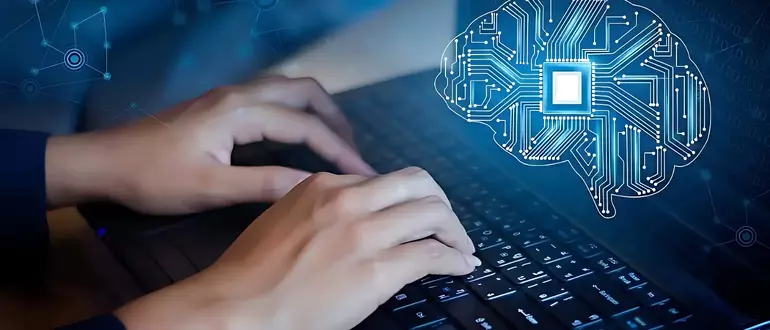
Traditional security techniques use signatures or indicators of compromise to identify threats.
This technique might work well for previously encountered threats, but they are ineffective for threats that have not yet been discovered.
AI can improve cybersecurity by identifying new and unknown threats through threat hunting.
Threat hunting is actively searching for cyber threats that have not yet been discovered.
Real-Time Detection and Response
AI-powered cybersecurity tools are designed to identify and detect attacks in real-time and can automate the incident response process.
With AI, organizations can respond to cyber threats faster and more effectively than ever before.
AI can also help human security experts identify threats that traditional security techniques may miss.
Improved Malware Detection

Malware is a significant threat to cybersecurity, and detecting it can be a time-consuming process.
However, AI algorithms can analyze and detect patterns in code that may indicate the presence of malware.
Machine learning algorithms can also be trained to recognize new types of malware, enhancing the ability to detect and mitigate them.
Market Growth
From 2020 to 2027, AI in cybersecurity is expected to rise 23.6% to $46.3 billion.
In 2024, global cybersecurity spending will hit $174.7 billion, with security services being the largest, according to IDC.
Automation of Cybersecurity Processes
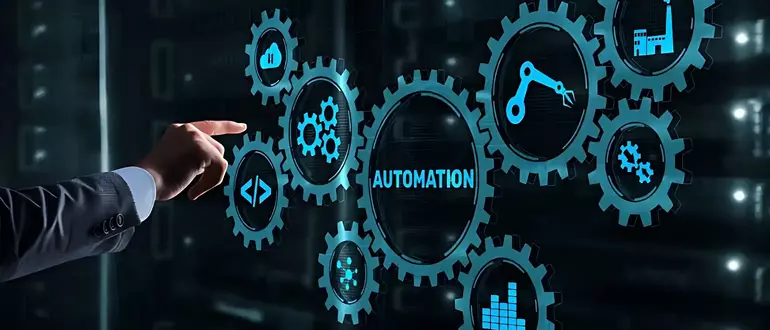
AI can provide automated capabilities to achieve tasks such as vulnerability discovery, target selection, command and control, and attack execution.
This automation can offer significant advantages to sophisticated hackers faced with complex targets.
By automating certain tasks, organizations can reduce the time and resources required to respond to cyber threats.
Adversarial Learning
Adversarial learning is an emerging area in which AI algorithms are trained to identify and respond to threats from malicious AI systems.
This capability is critical as cybercriminals increasingly use AI to conduct attacks. Adversarial learning can help prevent these attacks and protect organizations from harm.
Autonomous security systems
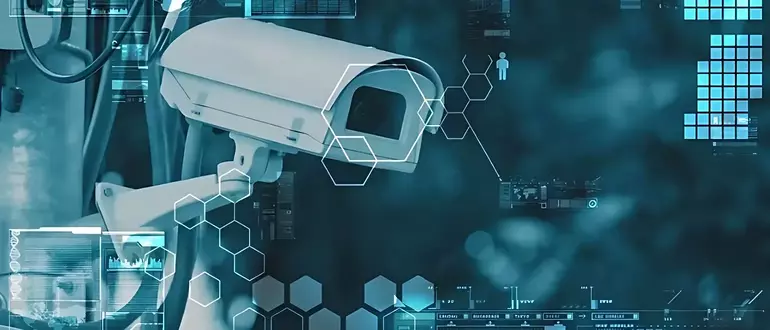
Autonomous security systems that automatically detect, analyze, and react to security threats could improve cybersecurity.
Autonomous systems can operate 24/7, providing continuous protection against cyber threats, and can respond to incidents faster than human analysts.
Behavioral biometrics
Behavioral biometrics is a promising technology that uses AI to analyze user behavior patterns to identify potential threats.
This technology can build a behavioral profile for each user based on typing speed, mouse movements, and application usage.
The system may warn of a security risk if behavior deviates from expectations.
Quantum computing for encryption
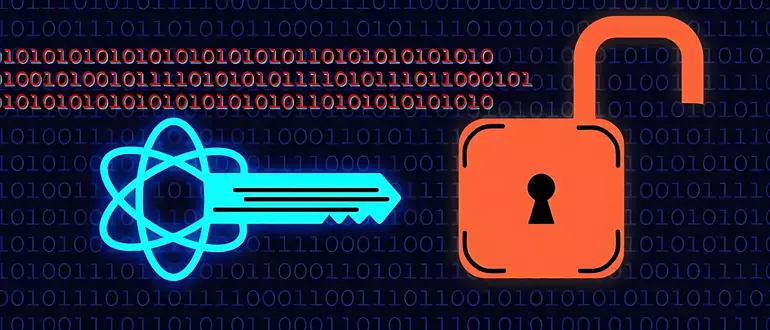
Quantum computing solves complex issues that traditional computers cannot. Quantum computing could use encryption in defense.
Quantum computing can break traditional encryption methods and build new, more secure ones that are resistant to traditional computers.
Cybersecurity in the cloud
Cloud computing is growing, necessitating strong protection. AI can monitor network traffic, spot anomalies, and respond to threats in real-time to secure cloud infrastructure.
AI-powered cloud security is more thorough and scalable than traditional security.
Predictive analytics
AI-based predictive analytics analyzes data to predict future events. Predictive analytics can spot cyber threats before they happen.
Predictive analytics can help businesses avoid risks by identifying patterns and trends in historical data.
What Are The Risks And Dangers Of AI In Cybersecurity?
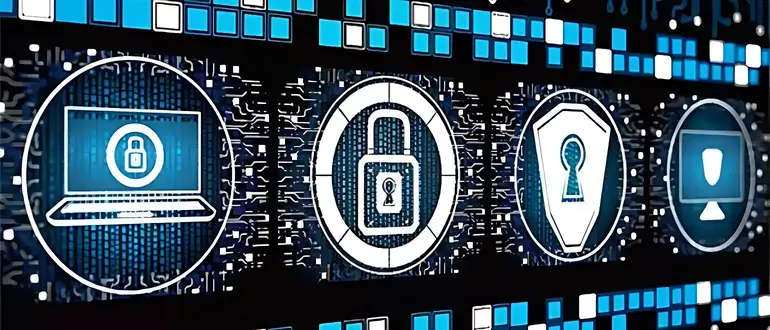
Vulnerability to adversarial attacks:
An adversarial cyber strike involves a subtle change to input data to deceive an AI system.
This modification is often undetectable to humans but can greatly impact AI decision-making.
Thus, hackers can bypass an AI-powered cybersecurity system’s security steps.
Lack of transparency:
AI’s lack of openness in cybersecurity poses another risk. AI-powered systems use complicated algorithms to make choices, even for experts.
Lack of transparency makes it difficult to spot and fix system security flaws, increasing cyber-attack risk.
Dependence on data quality:
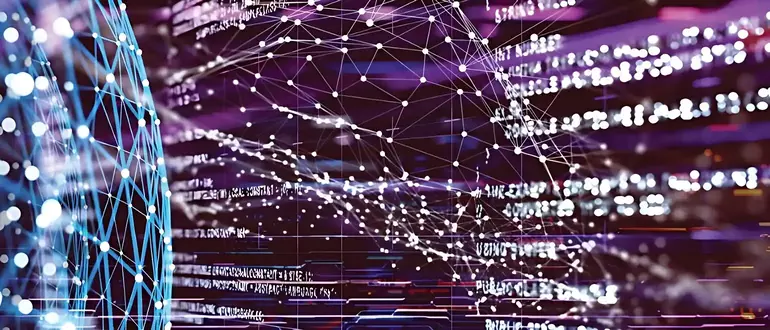
AI systems rely heavily on the quality of data they receive to make accurate predictions and decisions.
If the data fed into the system is compromised or of poor quality, the AI system’s decision-making process may be compromised as well, leading to inaccurate or ineffective security measures.
Privacy concerns:
AI-powered cybersecurity systems can gather massive amounts of user and online activity data.
This data can enhance system performance, but it poses serious privacy concerns. Personal data collection and use, especially for non-cybersecurity reasons, may make users uncomfortable.
Human error:
While AI systems can detect and prevent cyber attacks, they are still reliant on human input and oversight.
Human error, such as incorrectly labelling data or failing to update the system’s software, can lead to serious security breaches.
FAQs
What Cyber Security Jobs Are Most Likely To Be Impacted By AI?
AI will most likely impact jobs involving repetitive and mundane tasks, such as monitoring security logs or detecting and responding to routine threats.
However, even in these roles, human oversight and decision-making will still be necessary.
Will AI Eliminate The Need For Human Cybersecurity Professionals?
No, AI is a tool that can assist human professionals, but it cannot replace them entirely.
Cyber security requires a range of skills that cannot be replicated by AI, including the understanding of business context, risk management, and compliance regulations.
How Can AI Enhance Cyber Security Jobs?
AI can enhance cyber security jobs by automating routine tasks, such as threat detection and response, freeing human experts to focus on more complex tasks.
AI can also provide insights and recommendations based on large data sets, improving decision-making.
Will AI Make Cyber Security Jobs Easier Or Harder?
AI can make some aspects of cyber security jobs easier by automating repetitive tasks and providing insights based on data analysis.
Can AI Be Used To Replace Entry-Level Cyber Security Jobs?
While AI can automate some entry-level tasks, such as vulnerability scanning, human experts are still needed to interpret the results and make decisions about how to remediate vulnerabilities.
Conclusion
AI may worry cyber security professionals. AI can automate jobs but cannot replace human expertise and critical thinking.
Staying current with technology and trends will help cybersecurity experts keep our digital world safe. AI will transform the field, but it won’t replace human knowledge.
